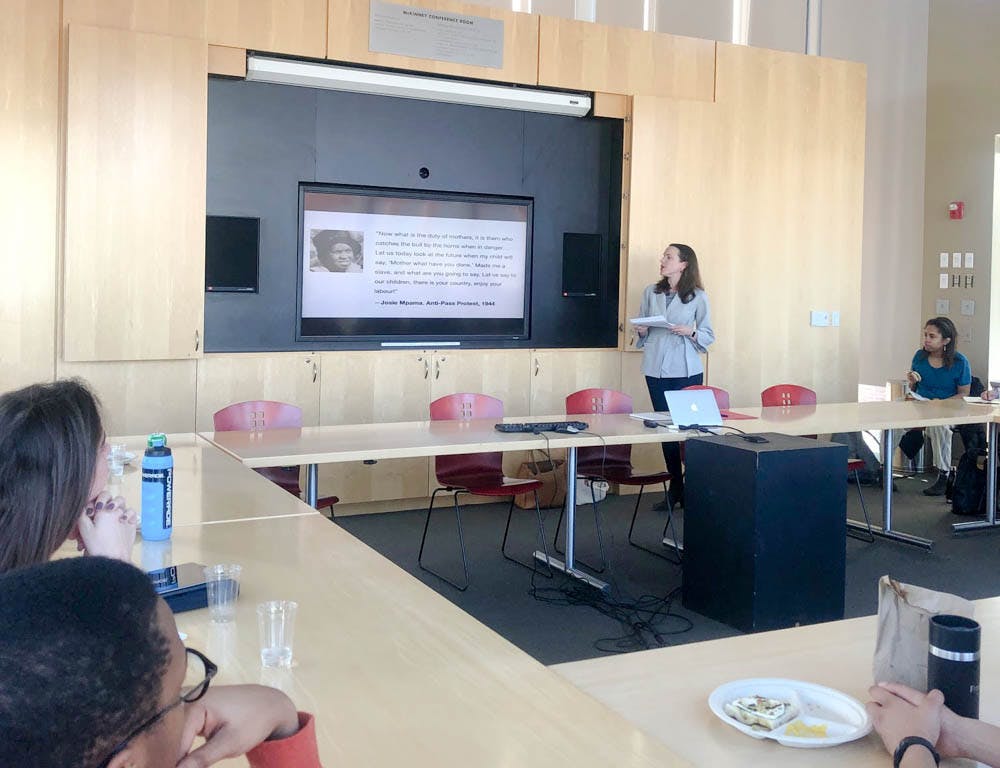Social historian Meghan Healy-Clancy gave the fifth talk in the Watson Institute’s Africa Speaker Series Monday, discussing the pivotal role of women in grassroots political movements in 20th-century South Africa.
Healy-Clancy, assistant professor of History at Bridgewater State University, encouraged listeners to consider the importance of “everyday social work” of women in both apartheid state-building and anti-apartheid politics.
The Africa Speaker Series is an interdisciplinary collection of guest lectures who shed light on political, social and humanitarian issues in contemporary Africa, according to the Watson Institute website. Launched last fall, the series has welcomed guests including Alex de Waal, executive director of the World Peace Foundation and research professor at The Fletcher School of Law and Diplomacy, and Elizabeth Foster, associate professor of History and co-director of Graduate Studies at Tufts University, to campus.
While easily overlooked, everyday social work that female activists did was fundamental to long-term change in South Africa, Healy-Clancy said.
Forms of female organizing and resistance, Healy-Clancy told audience members, were often rooted in maternalism. “Women deployed maternal public authority to try to build a new society in the 20th century,” she said. Projecting an image of female protestors with babies on their backs on the screen, Healy-Clancy said that their activism was rooted in a public responsibility to secure a future for their children.
This early dedication to social work and motherhood formed the foundation of female anti-apartheid efforts, said Healy-Clancy. Groups such as the Federation of South African Women and the African National Congress Women’s League were built on the principles of motherhood; just as past organizations were. Meanwhile, prominent leaders such as Winnie Madikizela-Mandela began her activism in social work. Even after these organizations went underground after 1960, women exercised power through the “cultural diplomacy front,” Healy-Clancy said. Forms of resistance included struggle songs and poetry, fiction and drama that critiqued apartheid structures.
In a later conversation with The Herald, Healy-Clancy said that while researching grassroots activism, she critically considers what qualifies as “political” and what motivates social movements. “A lot of activities that may not seem political in conventional metrics can be really fundamental to a social movement,” she said. “I thought about the importance of social organization to making movements possible.”
Audience members appeared to echo Healy-Clancy’s sentiments about the neglect of women in South African politics. Compared to figures such as Nelson Mandela, “I feel like most people would be hard-pressed to know the work women have done,” said Christopher Howard, an undergraduate at the University of North Carolina, who attended the talk while visiting a friend.
Zoe Coleman ’23, who grew up in South Africa, said that Healy-Clancy’s talk made her “rethink the sexist narrative of anti-apartheid activism.”





